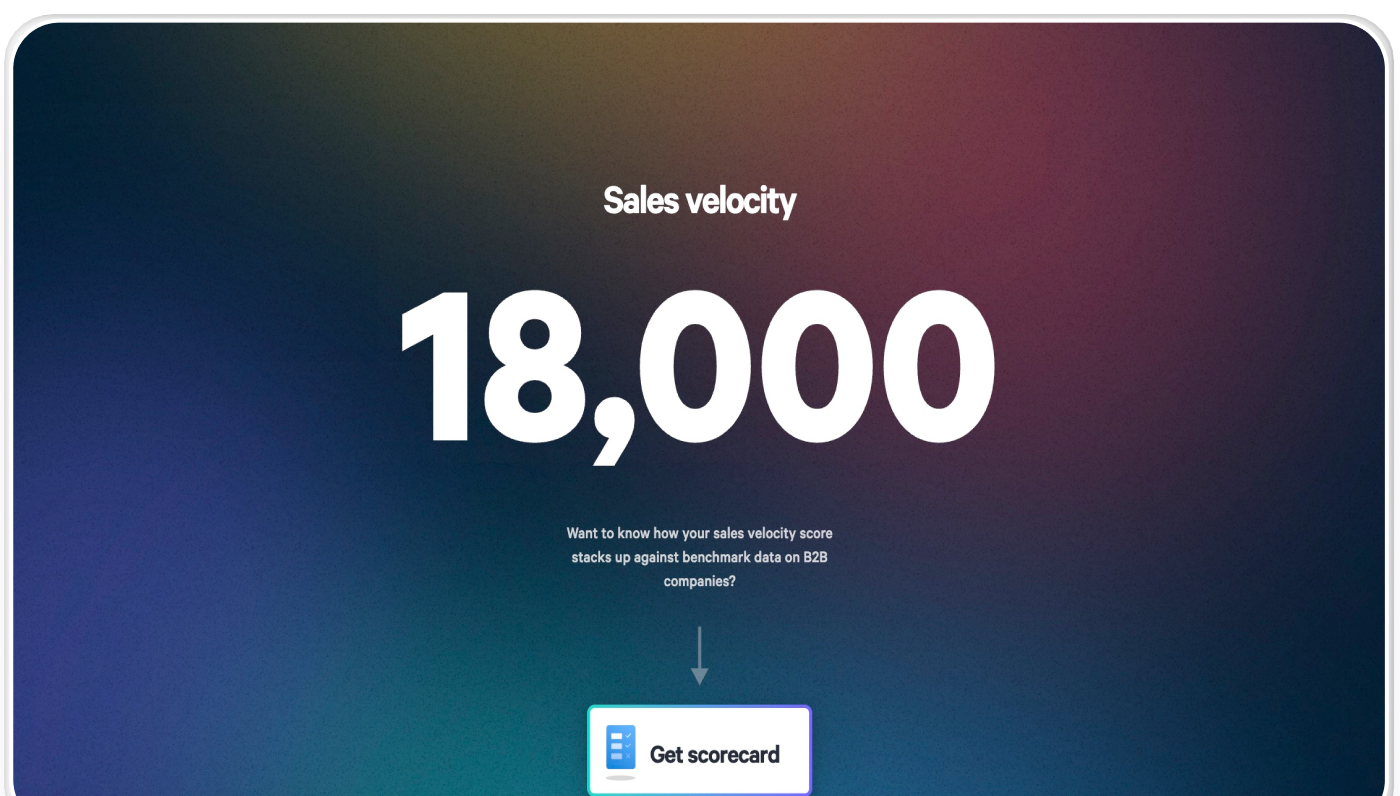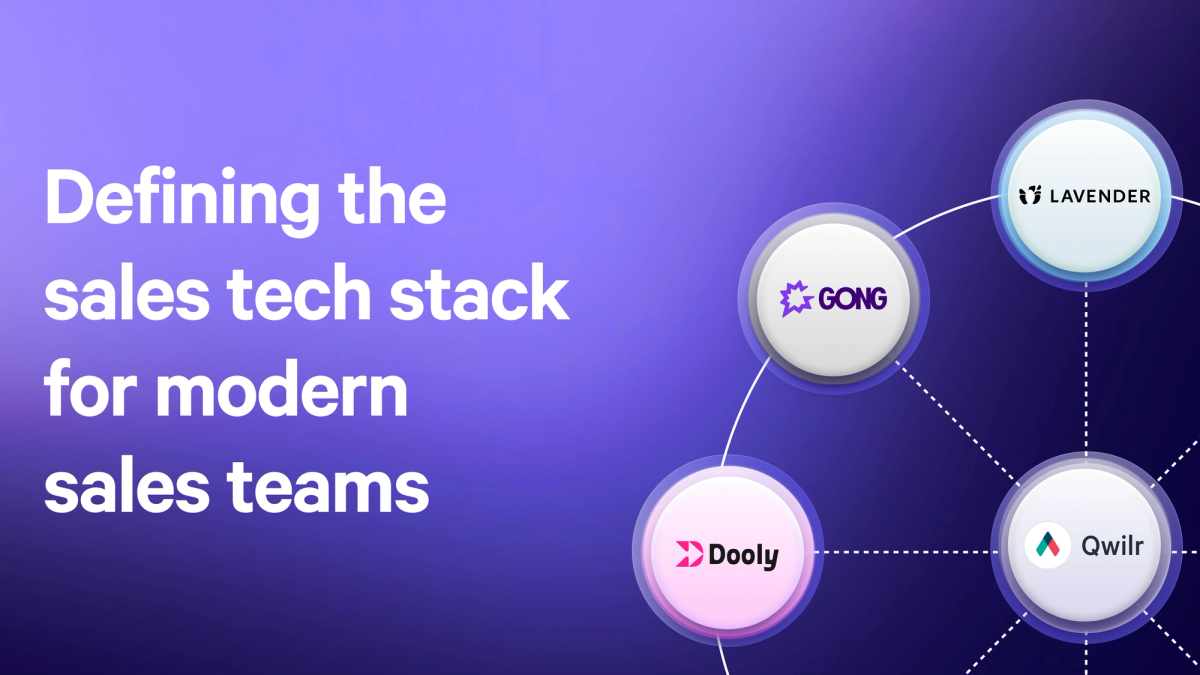
As inevitable as the march of technology, is the hysteria and fear about what it means for the human worker.
The Steam Age. Mass industrialisation. The IT era. All came and went with the same furore. All, ultimately, left us a lot better off.
The advent and emergence of Artificial Intelligence(AI) and specifically ChatGPT has provoked much of the same reaction - arguably more so, in social media’s heightened and amplified emotional landscape.
We’re hard-wired to fear the unknown, and that’s not to say there isn’t a degree of rationale behind this aspect of our biology. Jobs such as data entry that can be easily automated will be replaced (at some point), there’s no getting away from that. Some roles will inevitably shift focus as AI is delegated data-heavy, repetitive tasks. And in other roles, such as sales, a computer will struggle to replace the human touch needed to build those all-important human relationships.
But AI still has its place in Sales. There are many stages of the sales cycle that can benefit from automation and optimization - and this is the outlook you need when it comes to considering how to apply AI to the art of B2B sales.
While AI technology can't shake hands, foster customer relationships, or craft that perfect pitch based on human intuition, it can certainly automate busy tasks, predict the trajectory of leads, and make the sales journey smoother for both sellers and buyers. It's not the closer of deals but it can be the optimizer of your sales process.
A Salesforce State of Sales report found that not only are sales leaders expecting their AI adoption to outstrip any other technology, but that high-performing sales teams are almost twice as likely to be utilizing AI than underperforming ones.
In short, this is not the time to sit on your hands or hide behind them. Successful sales teams are getting themselves in front of the technology and leveraging it to save them time and boost their sales productivity. This article explores AI in sales, how to apply it, and nine tools to get you started on your AI journey and boost productivity.
What is AI in sales?
When you hear the term 'Artificial Intelligence', it might conjure up images of sci-fi movies, robots, and complex algorithms whirring away in some high-tech laboratory. But in the realm of sales, AI assumes a much more practical, down-to-earth role, and it's vital to demystify it to harness its potential fully.
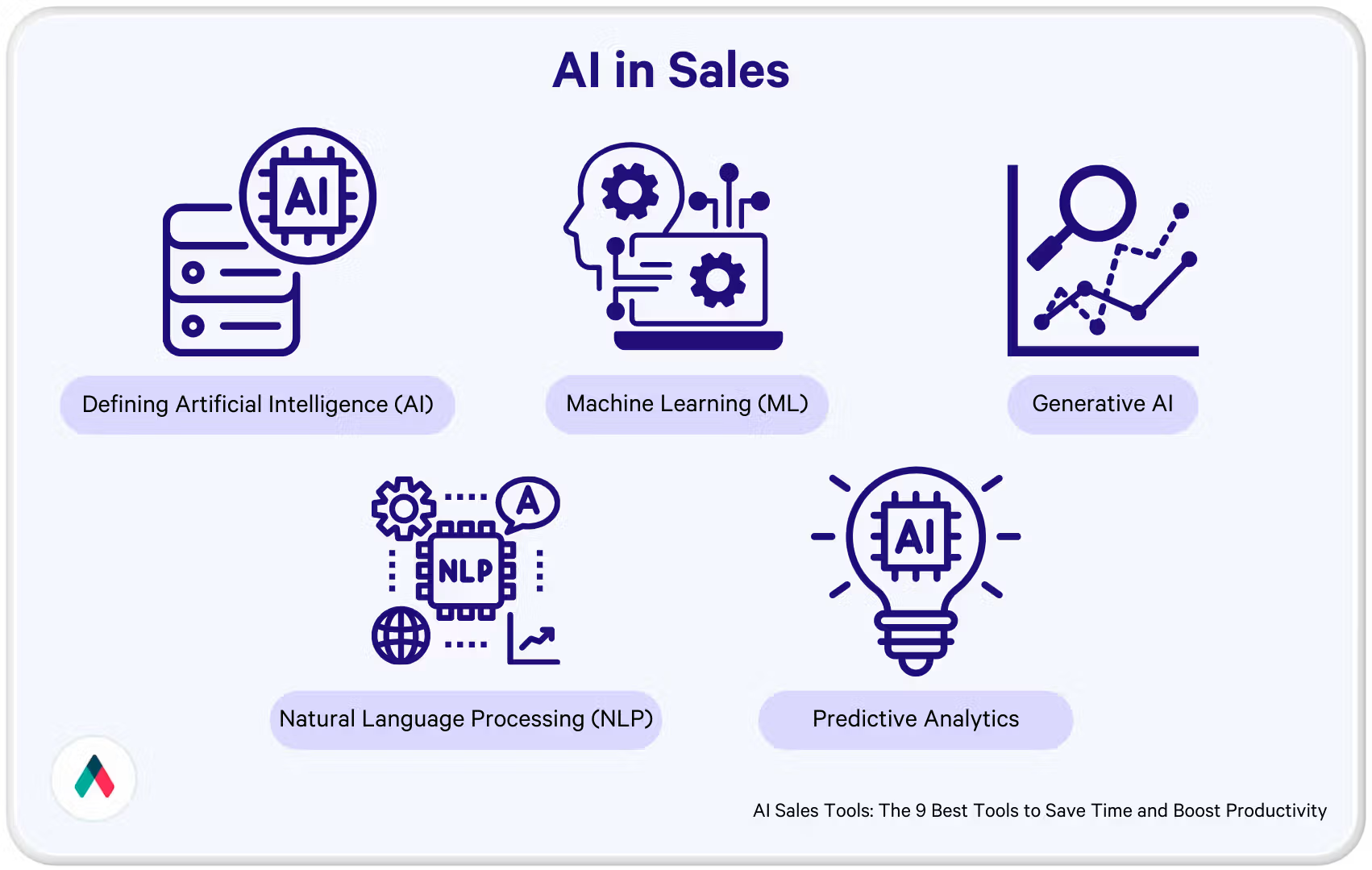
Defining Artificial Intelligence (AI)
At its core, Artificial Intelligence refers to machines' ability to perform tasks that would usually require human intelligence. These tasks can range from understanding natural language and recognizing patterns to making decisions based on vast amounts of data. Unlike the human brain, which can get fatigued or be influenced by emotions, AI can analyze and process information at superhuman speeds, consistently and without bias.
Machine Learning (ML)
Machine Learning is often a term you'll find used interchangeably with AI, but they're not quite the same. ML is the process by which machines improve at a task through experience. In sales enablement, this might involve an algorithm learning which leads are most likely to convert based on historical data.
Generative AI
Generative AI uses existing data to create new data that resembles human-created content. ChatGPT uses generative AI to create text, but this form of artificial intelligence is also being applied to create images, audio, code and more.
Natural Language Processing (NLP)
NLP is a field at the intersection of computer science, artificial intelligence, and linguistics. Its goal is to enable machines to understand, interpret, and generate human language. In sales engagement, NLP is often used in chatbots, sentiment analysis, and other tools that directly interact with potential clients or analyze their communications.
Predictive Analytics
This involves using statistical algorithms and machine learning techniques to identify the likelihood of future outcomes based on historical data. For sales reps, this can mean a tool that enables better decision-making and sales performance, thanks to data-driven sales forecasting and conversion rate calculations.
In the world of sales, AI can’t replace the human touch but it can enhance it. By arming salespeople with insights gleaned from massive datasets, automating repetitive tasks, and providing tools that allow for more personalized and efficient engagement with leads and customers.
How is AI already helping sales teams?
The transformative power of AI in sales cannot be understated - from lead generation to sales automation to pipeline management. While the very essence of sales is built on human connection and understanding, AI sales tools can vastly improve data quality and the efficiency of sales workflows, so that sales representatives can spend more time building relationships and closing deals.
Many businesses - including your own - may already be leveraging some of this technology. Here’s how AI has started to prove its value in the world of sales:
1. Enhanced Lead Scoring
Traditional lead scoring systems - based largely on gut feeling and broad criteria - have often been hit or miss. AI enables predictive lead scoring, analyzing vast amounts of data in the sales pipeline to rank leads on how likely they are to convert. By considering factors from behavioral patterns to online engagement, AI offers a more nuanced and accurate scoring system to help sales reps prioritize their inbound and outbound sales motions.
2. Personalized Outreach
AI-powered tools analyze past interactions and customer behavior to craft personalized outreach messages. Instead of a one-size-fits-all email, they enable tailored messaging that resonates with a lead's specific pain points or interests to uplift email marketing efforts.
3. Intelligent Chatbots
Chatbots are no longer the clunky, script-bound tools they once were. With advances in NLP, chatbots can engage leads in more human-like conversations around the clock, supporting a BDR team by answering queries, scheduling meetings, or even nurturing leads until notifications confirm they're ready for a human touch.
4. Forecasting & Analytics
Predictive analytics powered by AI offer sales and revenue teams a glimpse into the future. With the ability to forecast sales trends, it becomes possible to strategize proactively, whether allocating resources or focusing on particular products or markets.
5. Automated Administrative Tasks
The life of a sales rep is often bogged down by administrative tasks (with only 41% of the day actually spent selling). AI can automate many of these, from setting up meetings and following up on emails to entering data. This allows sales professionals to spend more time doing what they do best: selling.
6. Sentiment Analysis
Understanding a client's sentiment towards a product, service, or communication is invaluable. AI tools can scan emails, chats, or even voice calls to gauge the sentiment, allowing marketing teams and sales reps to adjust their approach accordingly.
7. Training & Onboarding
AI isn't just external-facing. Internally, AI-driven platforms can guide new sales reps through training processes, simulate sales scenarios, and offer feedback, ensuring they are field-ready in no time.
In essence, the best use of AI in sales activities is to augment human capabilities. It can provide the support and insights that sales reps need to make informed decisions, build stronger relationships, and ultimately, close deals more effectively.
Applying AI to optimize the sales cycle
The biggest opportunities for sales teams to utilize AI to boost productivity and performance are in the back end of the sales cycle - think enhancing CRM data, prospecting, research, email outreach etc. No one wants to be sold to by AI - it feels disingenuous and people still need and want confidence in their buying decisions, which can only be served by a trusted partner.
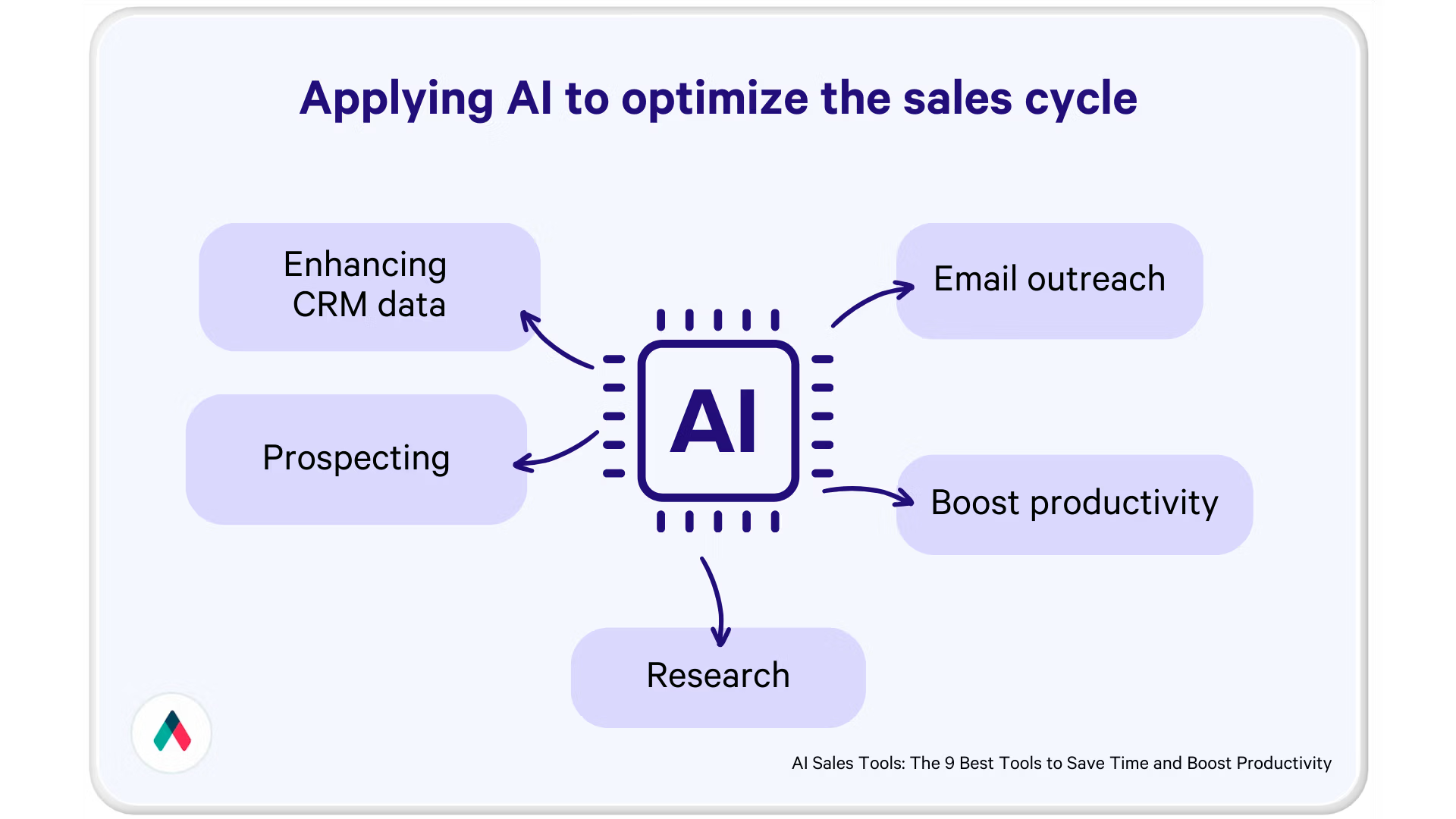
But adopting AI in these early stages of the sales process can save time and resources, and improve the buyer’s experience. Our top picks for applying AI for enhanced optimization include:
1. Identify Potential Customers
Enhanced Prospecting: Through data analysis, AI can uncover patterns and indicators that human analysts might overlook, identifying high-potential leads more effectively.
In-depth Research: AI tools can quickly gather comprehensive information about qualified leads, such as company background, recent news, or stakeholder details. This ensures sales reps are armed with all the necessary knowledge before making contact.
Market Insights: By constantly monitoring market trends and news, AI can pinpoint emergent industries or sectors that might be ripe for a particular product or service.
2. Personalization and Prospect Engagement
Tailored Communication: AI algorithms can tailor messaging based on a lead's behavior, preferences, and past interactions. This personal touch can dramatically improve customer engagement.
Adaptive Learning: AI tools can learn from each interaction, refining future outreach efforts based on what works best.
Automated Follow-ups: AI-driven systems can send follow-up messages at optimal times, ensuring that leads remain engaged without overwhelming them.
3. Optimize/Automate Sales Processes
Sales Playbook Automation: AI can suggest the next best actions or talking points based on historical data, guiding sales reps through the process.
Administrative Task Automation: Routine tasks, like updating CRM entries, scheduling meetings or taking meeting notes, can be automated using a simple AI sales assistant - freeing up more time for genuine selling.
Predictive Sales Cycle Management: AI can predict potential roadblocks or challenges in the sales cycle, enabling proactive measures.
4. Analyzing data to prioritize leads for improved sales velocity
Advanced Lead Scoring: With AI's deep data analysis, leads can be scored not just based on their potential value but also on the likelihood of conversion in the shortest time.
Sales Velocity Improvement: By identifying which leads to focus on, sales teams can reduce the length of the sales cycle, leading to faster revenue generation.
Insightful Reporting: AI-driven reporting tools offer not just data, but actionable insights for sales managers – highlighting areas for improvement and showcasing successful strategies.
Incorporating AI into the sales cycle isn't just about staying on top of the tech trend. It's about harnessing a powerful tool that can drive results, streamline operations, and ensure that sales teams are always operating at peak efficiency. While AI is powerful, it’s the human touch, intuition, and relationship-building skills that close deals. AI is there to support, inform, and optimize these efforts every step of the way.
The nine best AI sales tools for boosting sales team productivity
There are a wealth of AI sales tools to choose from, depending on what your current sales process and sales funnel look like. Sales leaders should work with revenue teams to identify where it makes sense to start with AI, with minimal disruption.
But to get you started, we’ve identified what we think are the nine best AI sales tools that can positively impact the sales process and supercharge your teams’ efficiency:
Sales Prospecting
Saleswhale
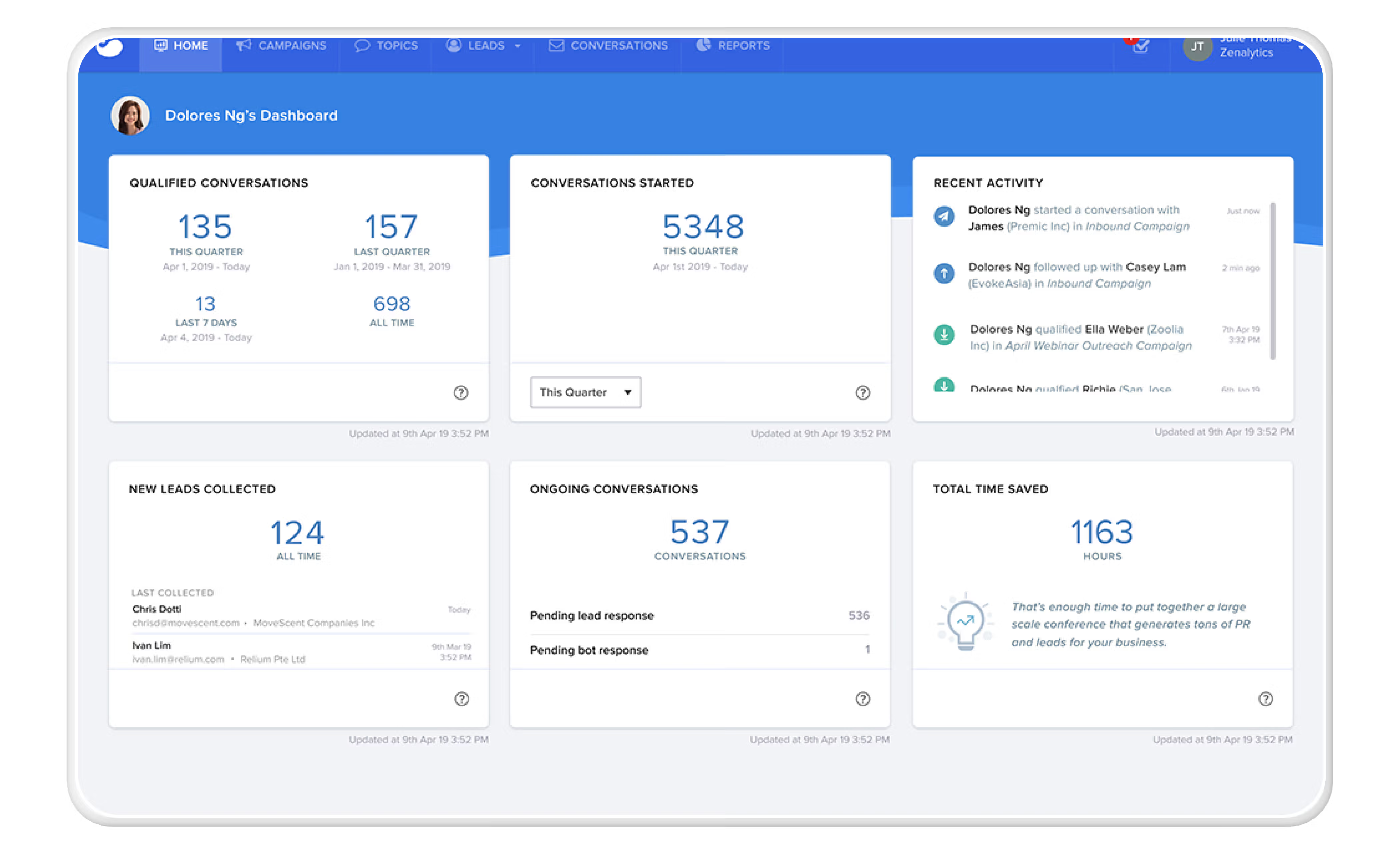
Key Features: Saleswhale is an AI sales assistant designed for automated lead engagement. It focuses on resurrecting lost leads, engaging them through AI-driven cold emails, and delivering comprehensive reporting for enhanced clarity.
For teams aiming to rekindle past relationships and missed opportunities, Saleswhale offers a personalized touch that's rare in automated systems. It feels like having a dedicated relationship manager for every lead!
HubSpot AI
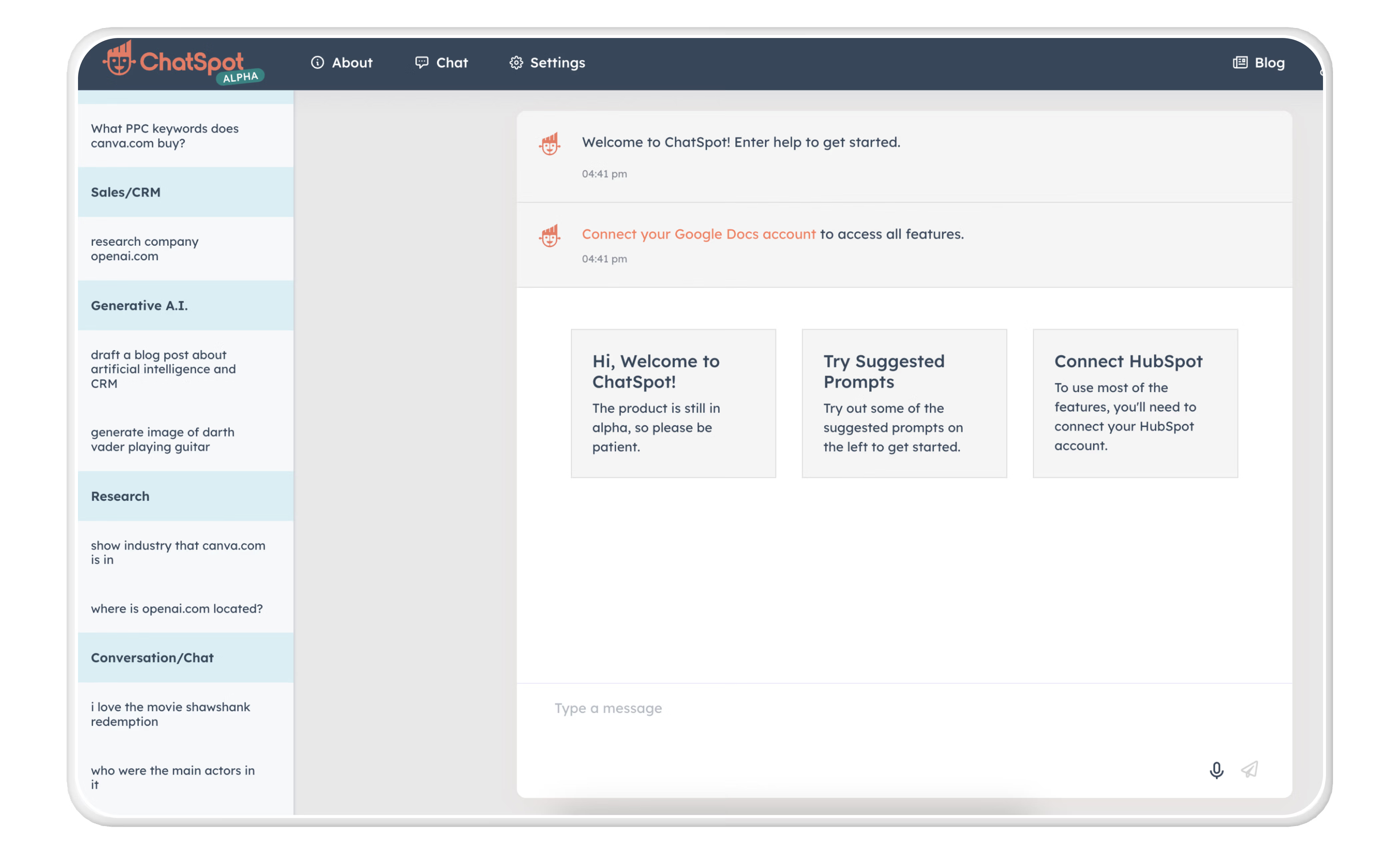
Key Features: HubSpot’s powerful AI-driven features prioritize quality leads, based on their likelihood to convert, optimizing content for search engines, and providing tailored recommendations for sales actions.
HubSpot's AI feels like a strategic advisor that not only understands your leads but also anticipates their behavior, making that sales dance a little more intuitive.
Seamless AI
Key Features: An AI-based real-time search engine for B2B sales leads, allowing direct connectivity with prospects. The Chrome extension makes on-the-go prospecting straightforward, and the platform aids in completing contact lists with its data enrichment feature.
Seamless AI acts like a dynamic bridge between browsing and prospecting, ensuring you're never more than a click away from a potential opportunity.
Research
Oliv AI
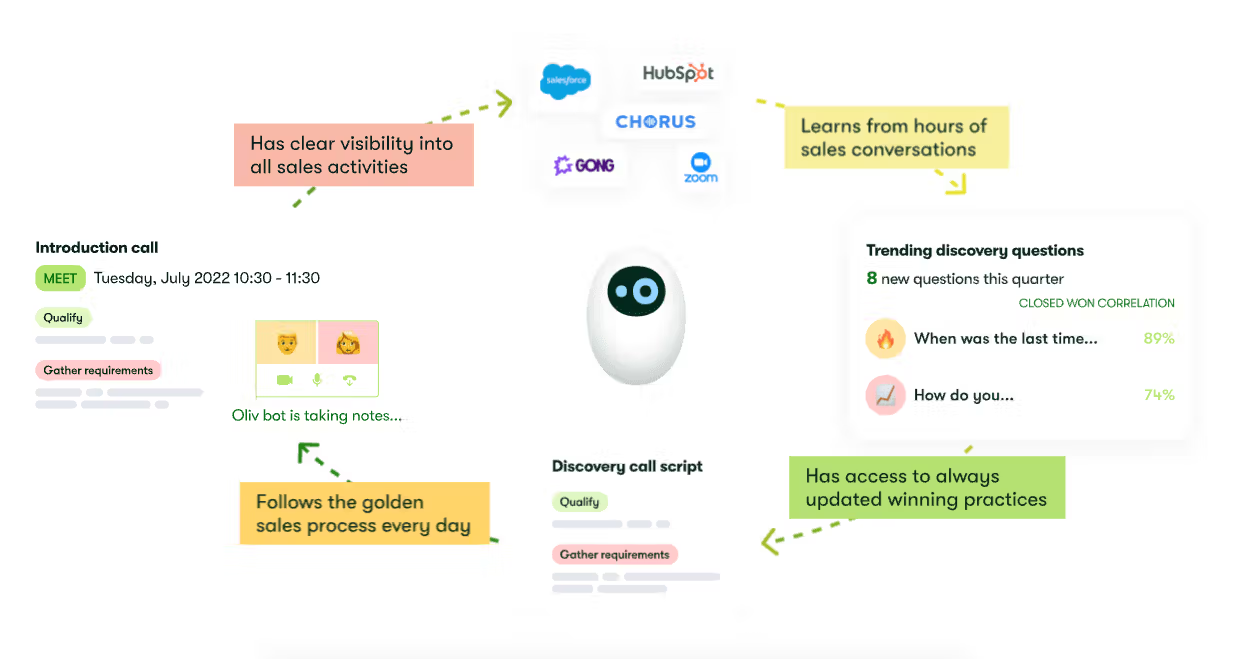
Key Features: Oliv AI extensively analyzes customer interactions, identifies top-performing discovery calls, provides live conversational insights to sellers, and updates CRMs seamlessly. It serves as a bridge between various sales tools, integrating them into a unified platform.
- Oliv AI reminds me of those invaluable debriefing sessions where sales veterans shared insights from their calls. Only now, those insights are backed by comprehensive data, making them even more actionable.
Clearbit
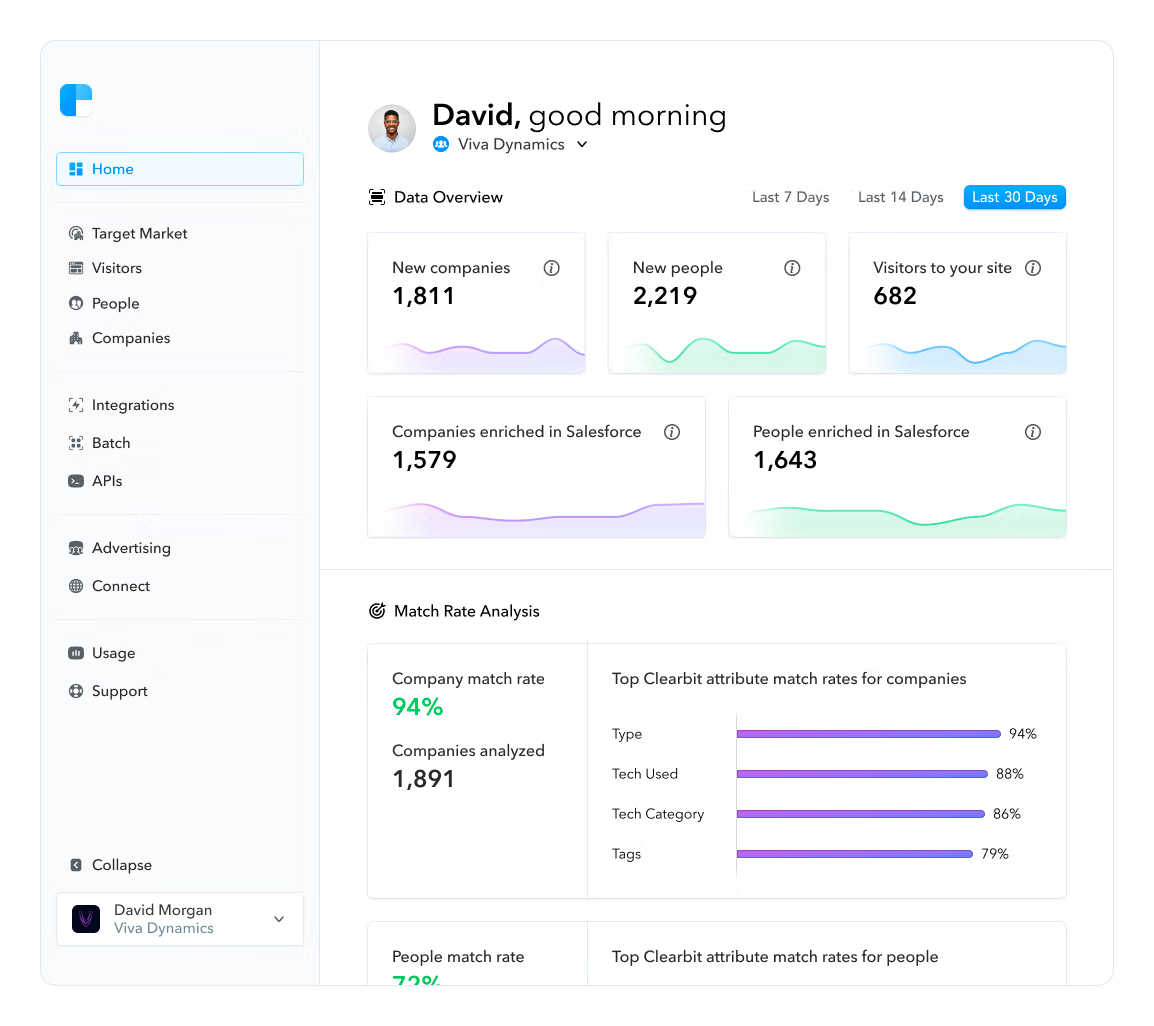
Key Features: Clearbit uses AI to automatically enrich profiles in your CRM with up-to-date information from the web, providing deep insights into leads, customers, and prospects. The platform can identify anonymous site visitors, automatically update records, and help segment your audience for personalized outreach.
Clearbit is like the Sherlock Holmes of sales tools—always digging deeper, always finding the hidden details that can transform a cold lead into a warm conversation. It's a game-changer for businesses aiming to truly understand their audience.
ZoomInfo Chorus
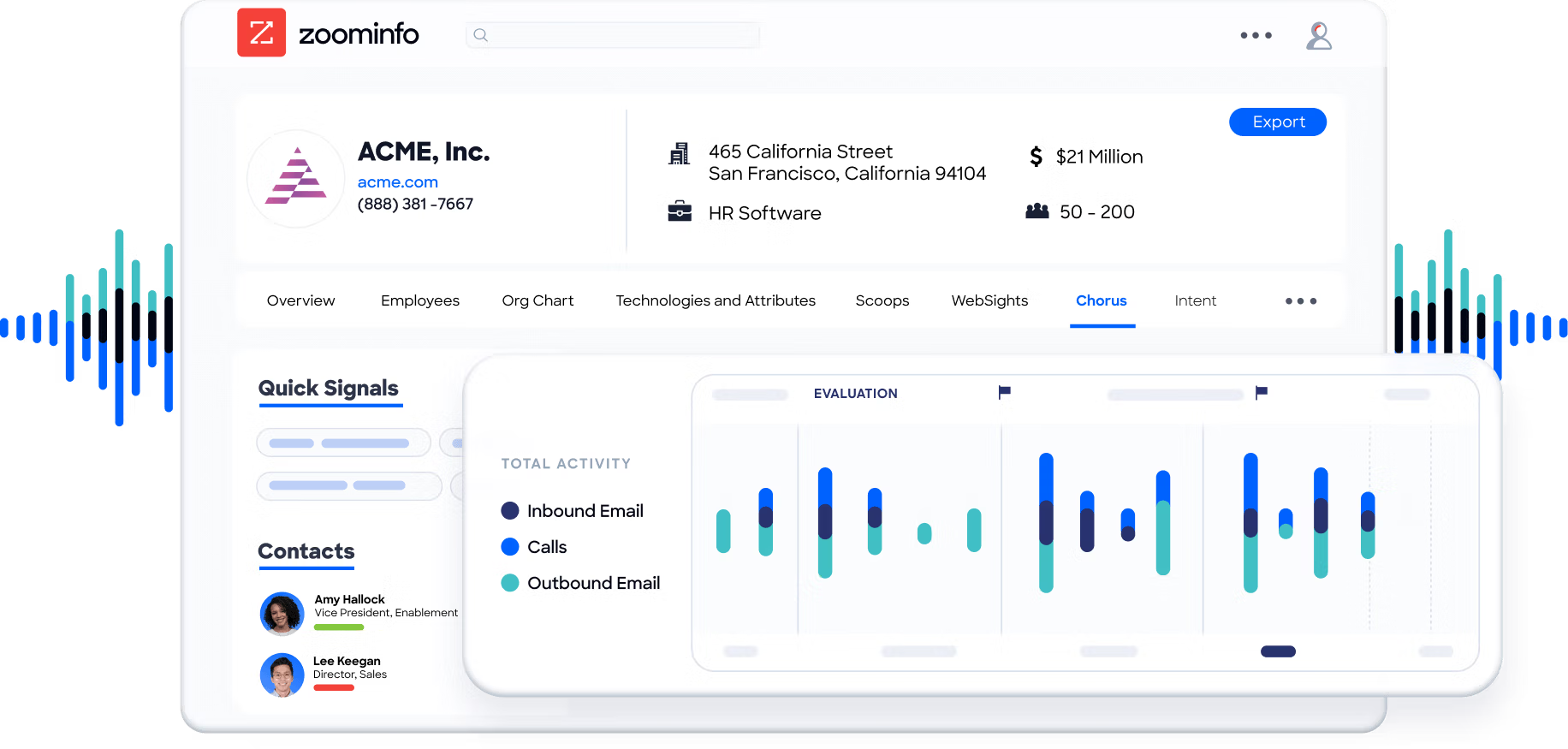
Key Features: ZoomInfo Chorus employs machine learning to capture and assess sales calls, emails, and meetings, giving real-time insights. The aim is to recognize winning behaviors to elevate team performance and offer competitive insights derived directly from customer language.
Chorus feels like that meticulous colleague diligently scribbling away after every meeting, before sharing them for the common good—always ensuring we're learning and evolving from each interaction.
Outreach
Drift
Key Features: Drift specializes in conversational sales with real-time alerts, AI engagement scores, quick meeting scheduling, video engagement, and comprehensive chat functions. The wide array of integrations makes it a versatile tool, with a Total Economic Impact study showing it offers a mightily impressive 60% ROI.
Drift embodies the future of outreach—it's dynamic, immediate, and personal. Like a digital concierge that ensures no prospect ever feels overlooked.
Veloxy
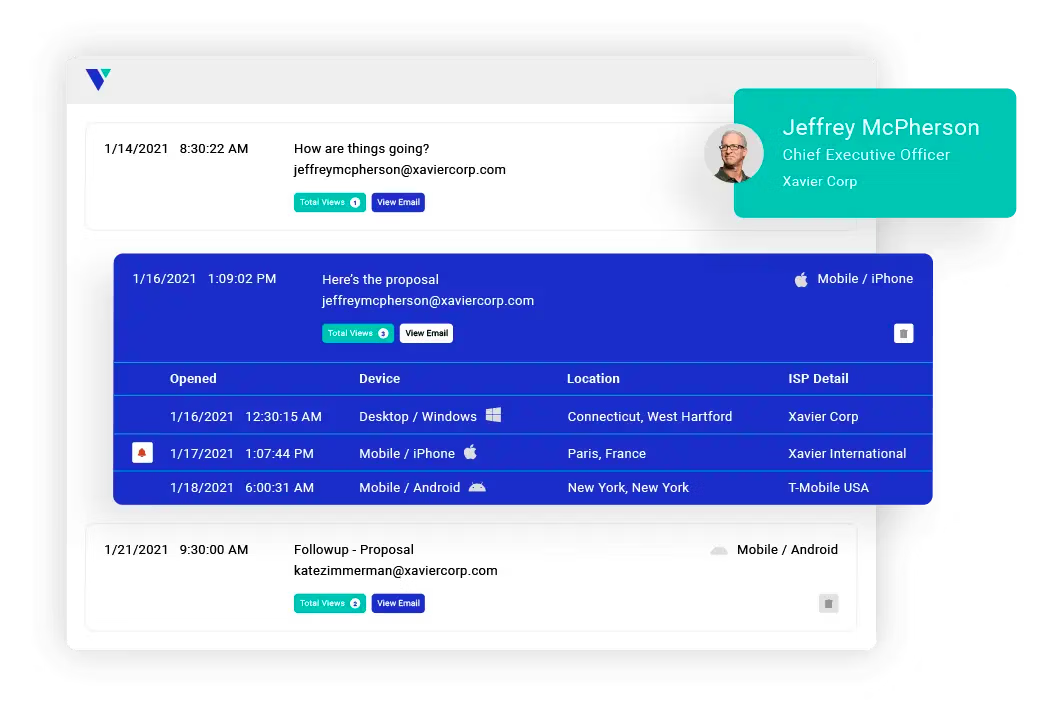
Key Features: Veloxy streamlines sales activities by leveraging AI to eliminate time-consuming non-sales tasks. The platform ensures constant customer engagement, provides ‘AI Guided Selling’ with smart notifications about which customer to approach, and suggests who is more likely to make a purchase, ultimately shortening the sales cycle.
Veloxy feels like having a trusted sales advisor by your side, constantly nudging you towards the most promising leads and ensuring you spend more time selling and less time on mundane tasks. A real shot in the arm for the efficiency of your customer engagement.
Regie AI
Key Features: Regie tailors sales outreach with hyper-personalized emails, optimizes workflows, aids in content generation at scale, and houses a robust Content Management System.
With Regie AI, outreach isn't just about broadcasting messages but about crafting narratives that can be applied to platforms such as LinkedIn. It's like having a seasoned copywriter and strategist ensuring every message hits the mark.
Conclusion
It's an exhilarating time to be in sales! As technology continues to evolve, so do the solutions that empower us. The tools we've showcased here are not just software solutions—they're strategic partners, each bringing their own set of superpowers to the sales arena. Lean into these innovations, and you'll find they don't replace the personal aspect of sales; they enhance its efficiency - ensuring that every prospect interaction is not just a transaction, but a meaningful connection.
Why not try Qwilr’s AI Page Builder?
While these tools harness the power of AI throughout the prospecting and outreach process, Qwilr’s AI page builder uses it to save you serious time building proposals and other sales templates from just a handful of prompts. Choose from a range of designs, then simply tweak the auto-generated content (like the scope of work, pricing, ROI, timeline and deliverables etc) as needed, and send. It’s included with our 14-day trial so try it today for yourself- then start planning how to spend all that extra time!
About the author

Sarah Taylor|Senior Content Marketing Manager
Sarah leads Qwilr's content marketing efforts – specialising in field marketing, campaign planning, content, brand and communications. Sarah has both agency and global corporate experience spanning Australia, Asia and the UK.
FAQs
AI enhances lead scoring by utilizing predictive analytics to analyze vast amounts of data and identify patterns that indicate a lead's likelihood to convert. Traditional lead scoring systems often rely on broad criteria and gut feeling, which can be inconsistent. AI-driven predictive lead scoring, on the other hand, considers various factors such as behavioral patterns and online engagement, offering a more nuanced and accurate ranking system. This helps sales reps prioritize their efforts effectively, focusing on leads with the highest potential for conversion.
AI personalizes outreach by analyzing past interactions and customer behavior to craft tailored messages. AI-powered tools can create personalized emails that address a lead's specific pain points or interests, rather than sending generic, one-size-fits-all emails. Additionally, AI can automate follow-up messages at optimal times, ensuring leads remain engaged without feeling overwhelmed. This level of personalization can significantly enhance customer engagement and improve the chances of conversion.
AI helps automate various administrative tasks in sales, freeing up time for sales professionals to focus on selling. Some of the tasks AI can automate include:
- Setting up meetings and scheduling appointments
- Following up on emails and maintaining communication
- Entering and updating data in CRM systems
- Taking meeting notes and summarizing key points
- By automating these routine tasks, AI allows sales reps to spend more time building relationships and closing deals, thereby increasing overall productivity and efficiency.
